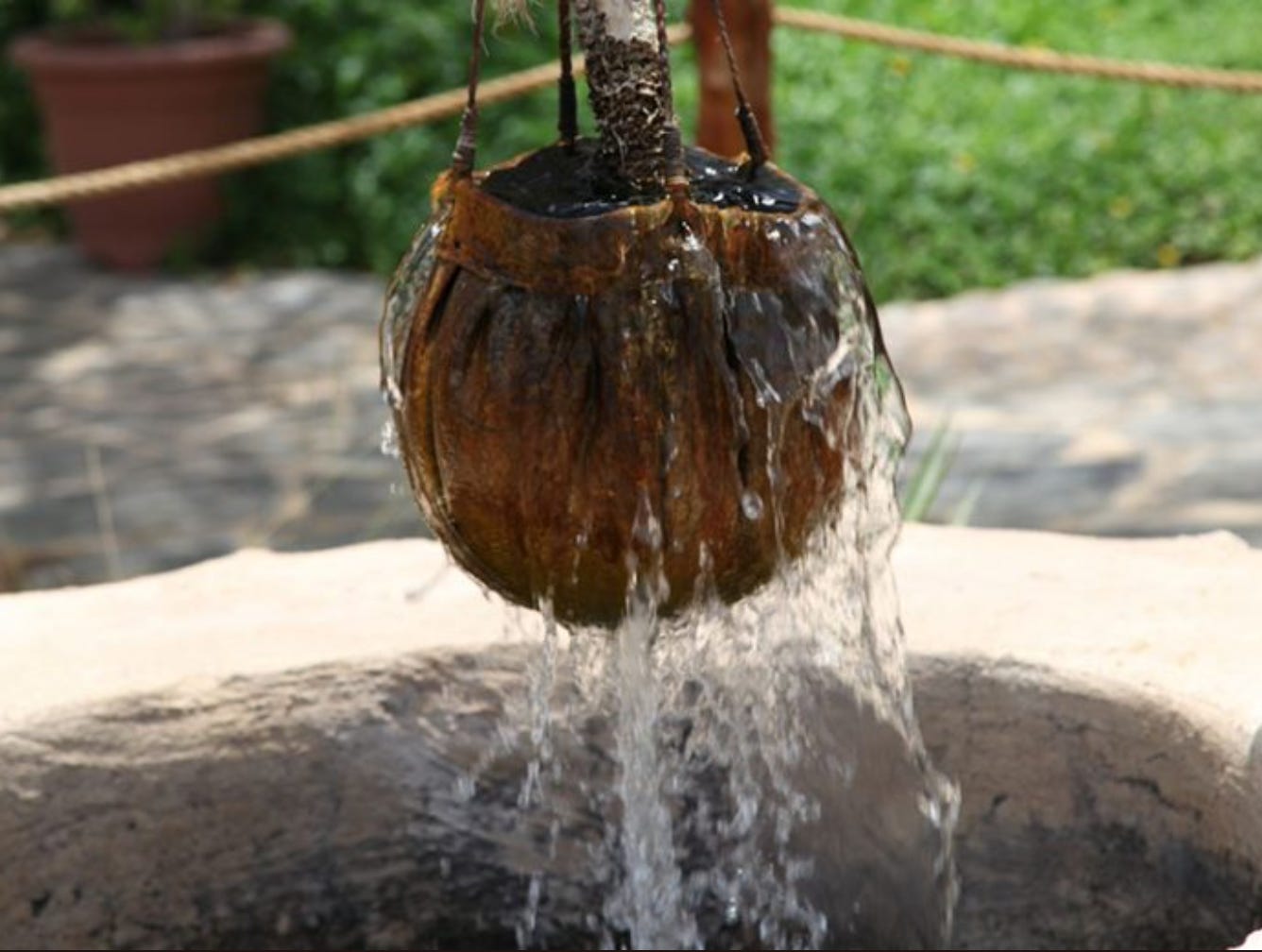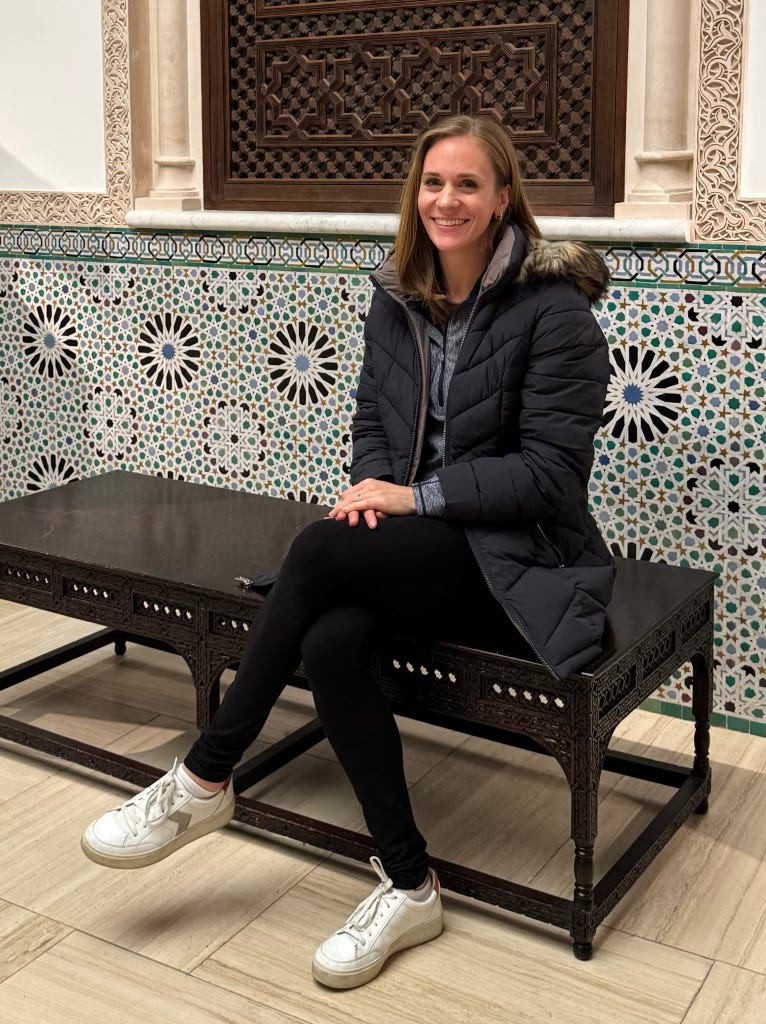Welcome to 'Digging Our Well'
The image of digging a well to God together captures what, for me, interreligious dialogue is all about.
In the Algerian countryside, in the 1990s, a man named Mohamed stopped by a Catholic monastery. He was there to see his friend, a monk named Fr. Christian, who was the head of the Cistercian community. Every now and then, the two men—one Muslim, one Catholic—would get together to converse about life and faith while walking amid the beautiful Atlas Mountains. They called it “digging our well.”
One day, when Mohamed came to see Fr. Christian, he called, “It’s been a while since we’ve dug our well!" Fr. Christian quipped back, “Well, what are we going to find at the bottom of our well? Christian water or Muslim water?” My truth, or your truth?
Mohamed replied, “You know better than that. It’s God’s water—it doesn’t belong to either of us.”
This image—of digging a well to God together—captures what, for me, interreligious dialogue is all about.
A well is a place of meeting. Pope Francis often talks about dialogue as “encounter”—sharing our joys and sorrows, being present to another, sharing of ourselves and in turn being willing to truly receive what the other has to offer us. Like an open well, dialogue is characterized by real openness to those we meet.
These kinds of interreligious encounters can be formal and planned, where we purposefully gather to talk about our respective religions or work together to alleviate a social problem. But dialogue isn’t something we have to add to our calendars between our many other activities and responsibilities. Dialogue is a way of being, a way of relating to others, that we can embody in every area of our lives. We can dig wells anywhere.
Dialogue isn’t about arguments or conversion. As Mohamed knew, the goal is not to get people to see things our way, or to prove we have all the answers about God, or to convince others to join our religion. On the flip side, it’s also not about ‘watering down’ our respective religious traditions, or having conversations that remain surface-level. Instead, interreligious dialogue is about going deeper—to know others, ourselves, and ultimately God more deeply.
The metaphor of the well also conveys that it is God who calls us together in the first place. As Fr. Christian put it in his own writings, “the same thirst draws us to the same well.” Though Christians and Muslims have some notable differences in our beliefs about God, we also share much in common, including a desire to serve and draw closer to the One who is Most Compassionate and All Loving. And we know that our relationship with God is only as strong as our relationships with our fellow human beings. The rope that connects us to God relies on them.
But even as we seek to encounter God with the help of our partners in dialogue, we know that we will never (at least in this life) reach the bottom of the well. Like the water which continually seeps up and presents itself, God as infinite mystery cannot be contained or fully grasped by any one person, by any one religious group, or even by humanity as whole. God is not an object to be discovered and grasped, but the endless source of all that is. The task of digging a well to God is a continuous one; we can always dig deeper.
Yet, all the while, with the help another, we can indeed draw up that water and get a real taste of the divine. With the help of another, we can manage to lift God’s heavy buckets that would be far too difficult to manage on our own.
The well metaphor also conveys my hopes for this publication I’ve launched on Substack. In digging for God in my own life, I have had many Muslim friends, classmates, and teachers join me in the task. They’ve helped me uncover beauty, ask hard questions, and settle down into trust amid uncertainty. My conversations with them have prompted me to mine my own Catholic tradition for gems I might have missed otherwise; to grapple with what it means to be a part of a messy and flawed faith community; and to reflect critically on how to put into practice the religious values I claim to have. Most simply and yet most profoundly, Muslims been companions whose presence and prayers accompany me throughout my life.
In “Digging Our Well,” I share some of these experiences and lessons I’ve learned through my interreligious encounters and study of Islam and Catholicism. I also offer in-depth, nuanced analyses of important issues of Muslim-Christian relations that often go overlooked. Oftentimes, my writing here goes beyond that specific realm, bringing in other religious traditions, delving into contemporary issues of social injustice, and reflecting on spirituality and faith in the context of daily life. When I publish articles or essays elsewhere, I share excerpts here, linking to the full piece when possible.
You can sign up below to receive this occasional publication in your inbox. And you can participate in the dialogue by offering comments and sharing this with others on social media.
I hope you will join me on this task of digging deeper and of drawing forth God’s water.







What a beautiful reflection! Thank you for taking the time to sharing why you named your Substack "Digging Our Well" and your reflections on interfaith dialogue, specifically Catholic-Muslim. As a Muslim who attended a Benedictine university, I found myself thinking the inverse. Looking forward to reading more of your writing!